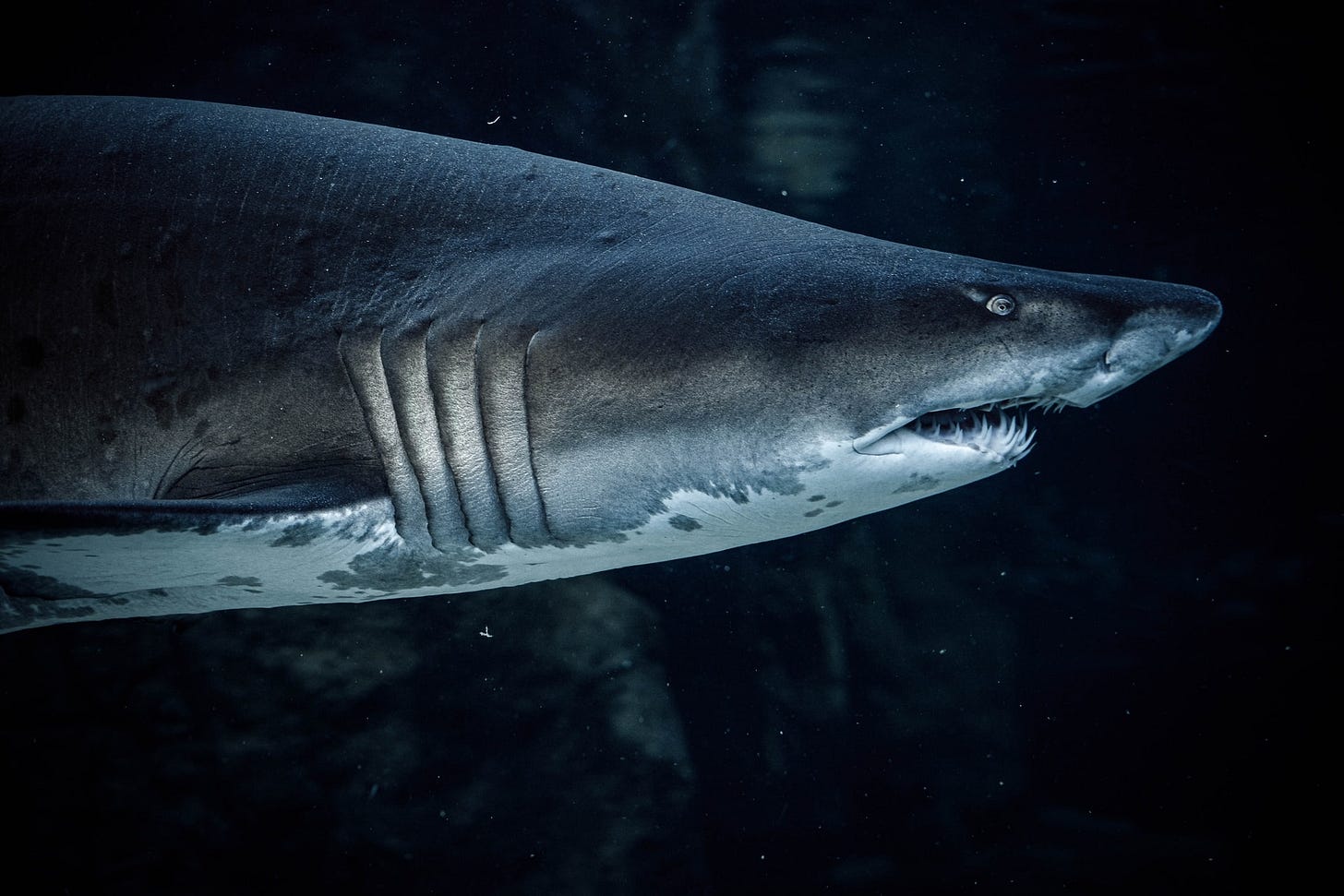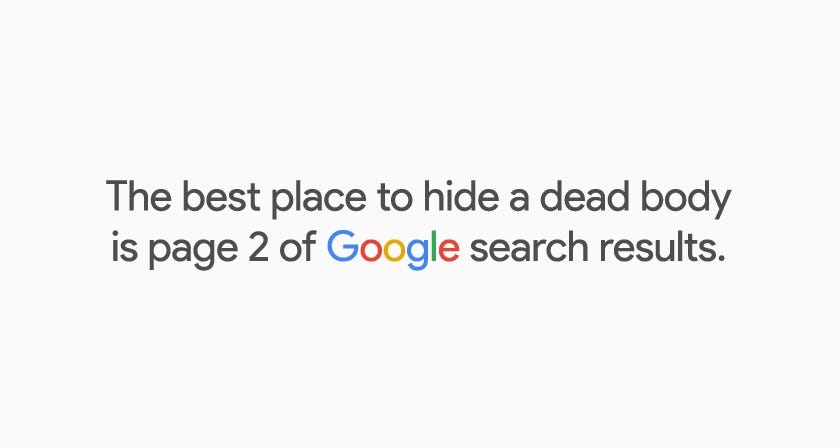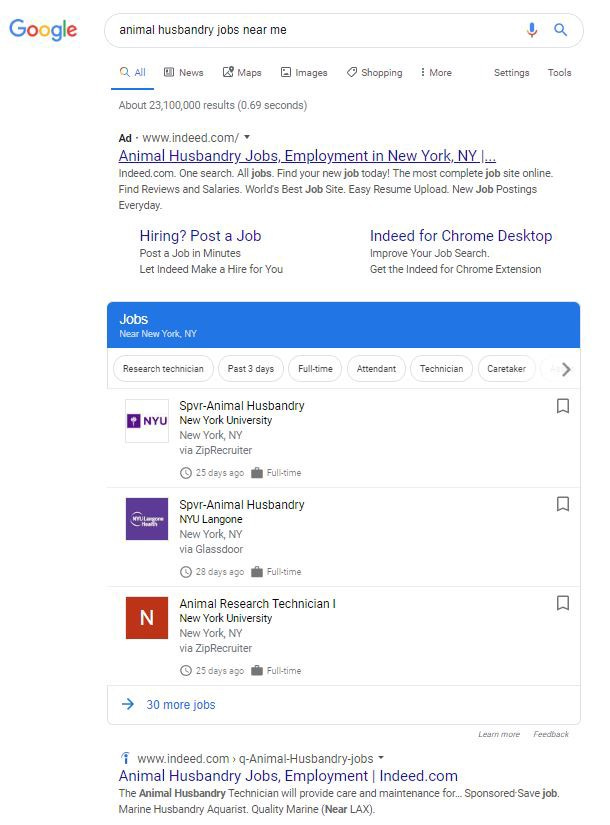#7 – The Red Queen Effect & The Google Squeeze
Running as fast as you can, just to stay in place
There’s a famous scene in Lewis Carol’s Through the Looking Glass featuring Alice and the Red Queen. The Red Queen grabs Alice’s hand and the two take off running. Alice is running as fast as she possibly can, and yet, she gets nowhere. Eventually the two stop and Alice rests against a tree. Out of breath and perplexed, she turns to the Red Queen (H/T Farnam Street):
“Why, I do believe we’ve been under this tree the whole time! Everything’s just as it was!”
“Of course it is,” said the Queen, “what would you have it?”
“Well, in our country,” said Alice, still panting a little, “you’d generally get to somewhere else — if you ran very fast for a long time, as we’ve been doing.”
“A slow sort of country!” said the Queen. “Now, here, you see, it takes all the running you can do, to keep in the same place. If you want to get somewhere else, you must run at least twice as fast as that!”
Running just to keep in place is an apt metaphor for business. If you stand still, you’ll be left in the dust. Even if you run as hard as you can, you aren’t guaranteed to get anywhere. This is known as the Red Queen Effect, a concept from evolutionary biology that’s widely applicable in other realms. According to Farnam Street:
The Red Queen Effect means we can’t be complacent or we’ll fall behind. To survive another day we have to run very fast and hard, we need to co-evolve with the systems we interact with.
If all animals evolved at the same rate, there would be no change in the relative interactions between species. However, not all animals evolve at the same rate. As Darwin observed, some are more “responsive to change” than others. Species that are more responsive to change can gain a relative advantage over the ones they compete with and increase the odds of survival. In the short run, these small gains don’t make much of a difference, but as generations pass the advantage can compound.
Flies and frogs are a good example. Some frogs have longer tongues and some frogs have shorter tongues. Some flies fly faster and some flies fly slower. Of course, frogs want to eat flies and flies want to avoid being eaten by frogs. The frogs with longer tongues have an advantage in catching flies and are more likely to survive and reproduce. Over time, more and more frogs have long tongues. But the reverse is also true. The flies that are most likely to survive are the fast ones. So over time, it looks as if nothing has changed, but frogs have longer tongues and flies are faster. They’ve both been running hard to stay in the same place.
What do frogs and flies have to do with business? As this post from Stratechery suggests, more than you might think.
In consumer internet, you can think of Google as an apex predator.

The company doesn’t stand still. It pushes forward aggressively on many fronts. The dangers of failing to adapt to a changing environment were highlighted recently in the online travel space, where growth at Expedia and TripAdvisor was negatively impacted by diminished SEO visibility. Here’s what Expedia’s (recently departed) CEO Mark Okerstron said:
What we saw was a continued shift of essentially the free links further down the page, by other modules that were inserted and ultimately a shift of traffic from the SEO channel over to some of the other products whether it’s flight metasearch or hotel metasearch over time.
TripAdvisor’s CEO, Steve Kaufer echoed this:
We did see some incremental SEO headwinds over the course of the quarter. It’s always hard to know exactly what Google is doing. We think of it as how far down the page are we is our organic result. And I think you’re seeing this across the industry as Google has gotten more aggressive…We know that this SEO piece is an ongoing trend and we’re not predicting that it’s going to turn around.
What both Expedia and TripAdvisor are saying is that Google’s tongue is getting longer. Here’s what that looks like, per Stratechery:
All that scrolling is pretty annoying. That’s the predicament that Expedia and TripAdvisor found themselves in. Both companies used search engine optimization (SEO), or high placement on search engine results pages, to grow their businesses. The companies still perform well in organic search, but the environment has changed. Over time, Google has added more and more ad units at the top of search, first on desktop then on mobile. Additionally, the company launched the room booking module, another ad unit. For online travel agencies reliant on SEO for traffic, these ad units have pushed their results further down the page. The shift to mobile has exacerbated this, as limited screen real estate requires more and more scrolling (see picture above). As the joke goes, the best place to hide a dead body is on the second page of Google search results.
Returning to Stratechery, Google is constantly experimenting, iterating, and improving:
The company has the dominant position in its value chain largely by providing a better product. Search was better to start, but Google didn’t rest on its laurels: it made search better on mobile in particular with these sorts of modules, and while users could download another app or go to a different URL, they simply don’t want to.
Expedia and TripAdvisor provide a case study in what happens when you’re not running as fast as your competitors. While Google grew a longer tongue, Expedia and TripAdvisor didn’t learn how to fly faster. Back to Stratechery:
Google started to transform mobile results in particular to be much more useful: instead of forcing users to click a link for an answer — something mobile users dislike about as much as downloading new apps — Google would give it to them.
One parallel between online travel and online job search is that organic results in both spaces are being pushed further down the search results page:
This means that companies like Glassdoor, Indeed, and ZipRecruiter are going to need to run a lot faster. And that’s just so maintain our relative position.
So what’s the antidote? Booking.com illustrates one path forward. In contrast to Expedia and TripAdvisor, the company wasn’t materially impacted by Google’s SEO changes. Here’s what their CEO Glenn Fogel had to say:
Regarding SEO, we saw some headwinds in the SEO channel that did create some modest pressure, but it’s a small channel for us…In the end, what’s most important for us to get customers to come to us directly. We’ve talked about this a lot in the past. It’s one of the things that I think is very important. For us to have our own future is to create a service that is so wonderful, so good that people just naturally will come back to us directly. And we will not be as dependent on other sources of traffic.
To succeed, companies need to constantly improve and deliver more value to users. Competition for users and attention is happening in an environment where there are many compelling alternatives one click away.





